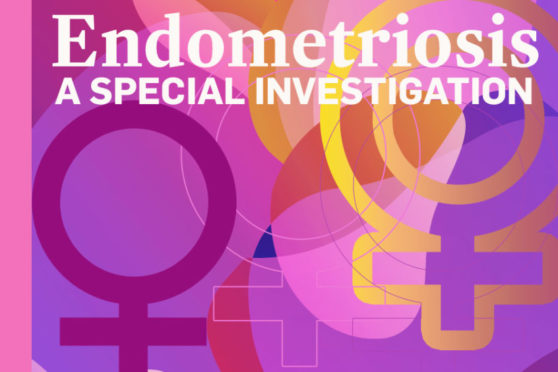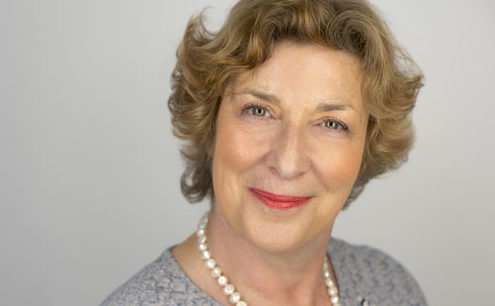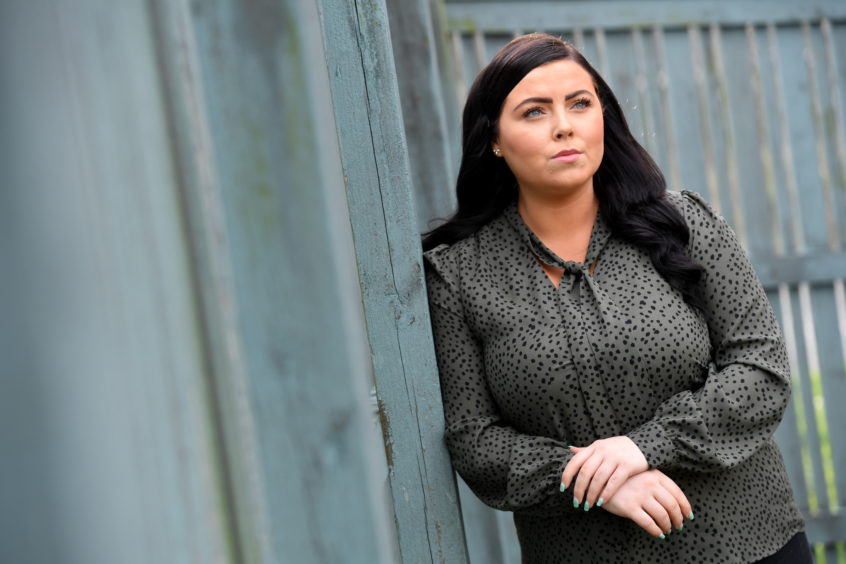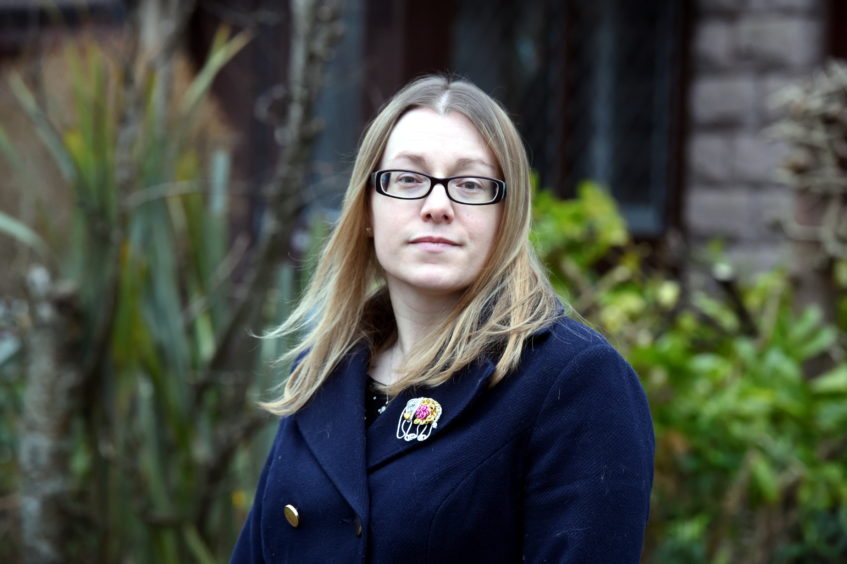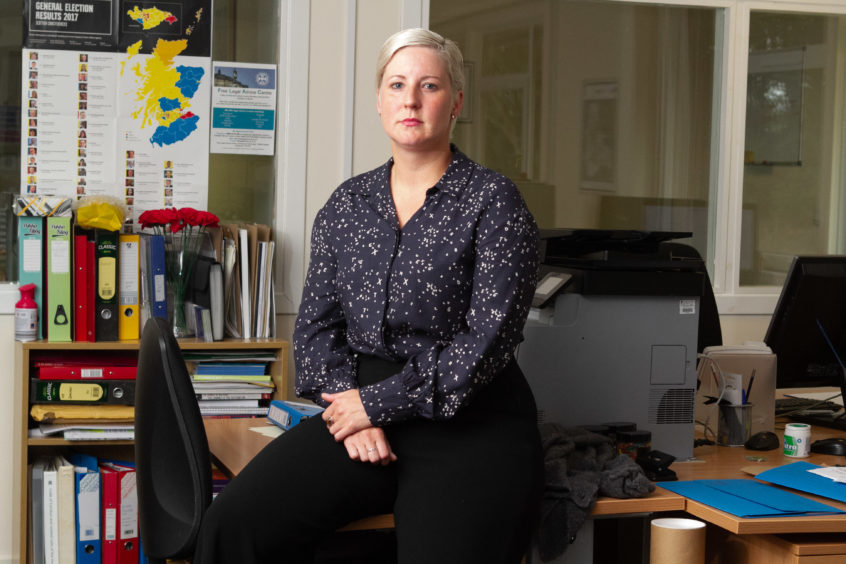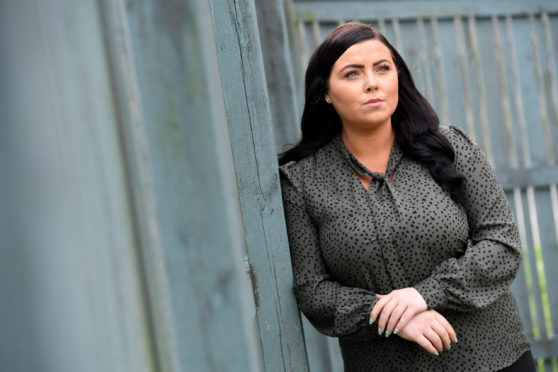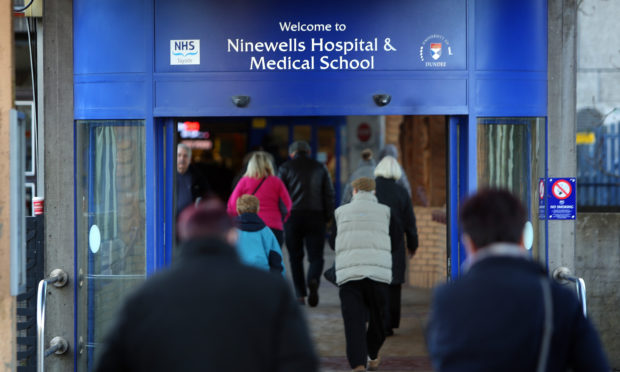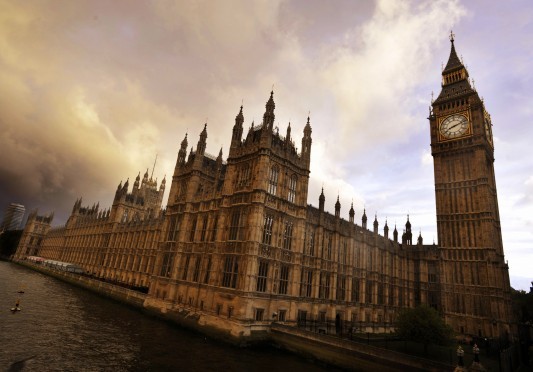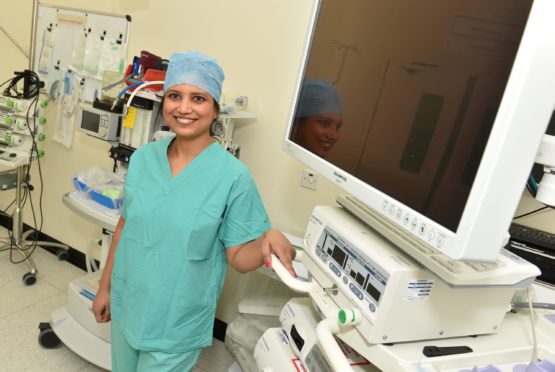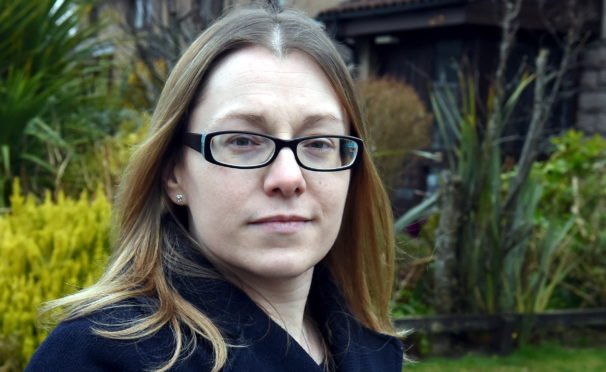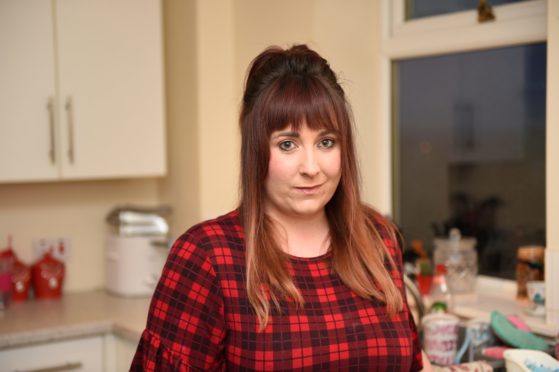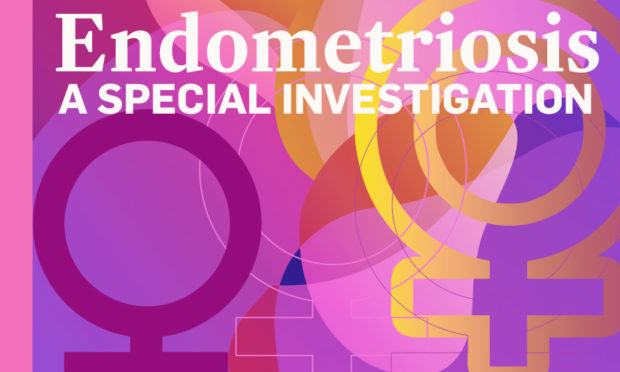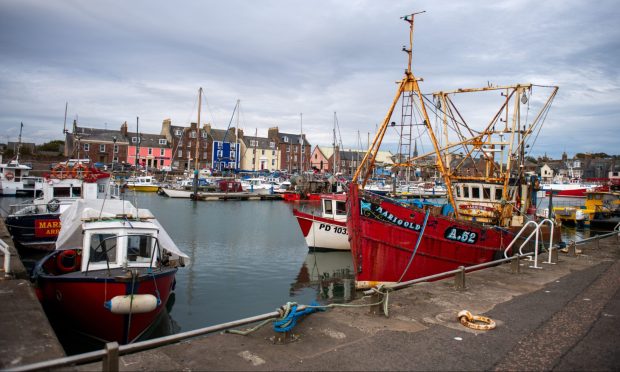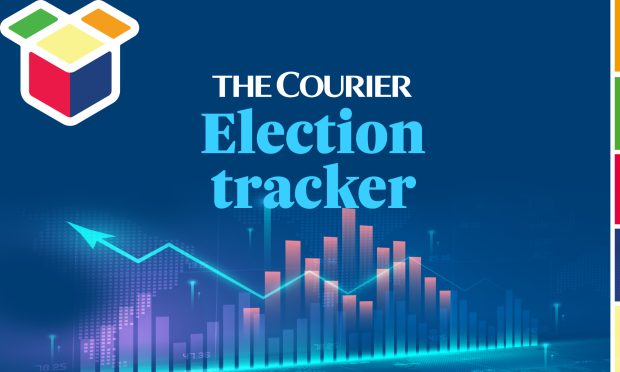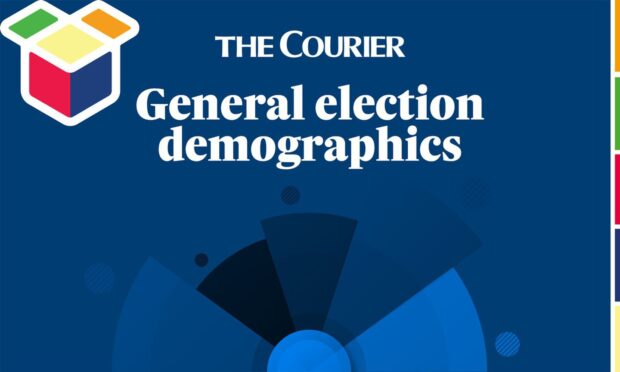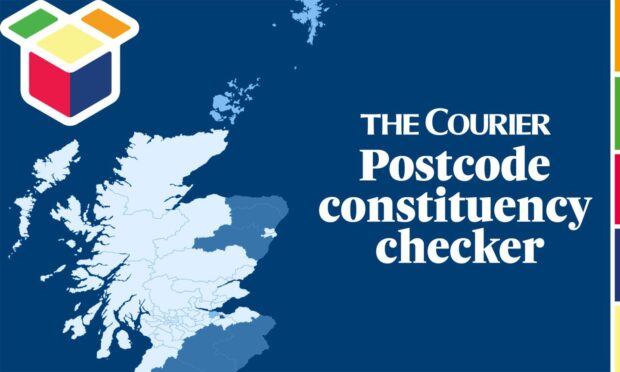The new chairwoman of charity Endometriosis UK said a Westminster inquiry into the condition presents a “real opportunity” to deliver much-needed improvements for sufferers and future generations but there is still a “long way to go”.
The UK Government opened its inquiry into the challenges faced by endometriosis sufferers in February, with more than 13,000 women responding to the call for evidence.
This was initially due to launch its findings in July but has been delayed as a result of the ongoing Covid-19 outbreak.
However, Liz Campbell, the new chairwoman of Endometriosis UK, the leading charity supporting the 1.5 million women living with the condition, said there are plans to hopefully launch the outcomes in autumn, depending on the when the pandemic eases.
We revealed our own series earlier this year investigating the challenges faced by endometriosis sufferers, with women sharing some of their heartbreaking experiences with us, including feeling on the verge of suicide and giving up on long-held dreams of having their own family.
The long-term condition sees tissues similar to the lining of the womb start to grow in other places , such as the ovaries and fallopian tubes.
In an interview with Ms Campbell, who was appointed in April, she said the All Party Parliamentary Group (APPG) “remains dedicated” to carrying on with the inquiry, despite the current Covid-19 crisis.
She added: “There are plans to hopefully launch the outcomes of the inquiry in the autumn, depending on when the situation with Covid-19 eases.
“The inquiry has already heard from more than 13,000 people with endometriosis via a patient survey, and the APPG is now looking forward to hearing from healthcare practitioners and various ministers in due course.
“The APPG has also continued to gather evidence despite the outbreak of the pandemic, and last month the APPG virtually heard from a number of people in Scotland with endometriosis about the specific challenges those in Scotland face, which is testament to the APPG’s dedication in taking this forward.
“There is a long way to go to ensuring women with endometriosis are given the right care at the right time.
“The inquiry presents a real opportunity to deliver much-needed improvements for the diagnosis, treatment, and support for the 1.5 million women living with the disease, and reduce the suffering of future generations.”
There is a long way to go to ensuring women with endometriosis are given the right care at the right time.”
Liz Campbell
Many endometriosis sufferers have had operations cancelled, while others may not have been able to access their usual treatments during the Covid-19 pandemic.
Ms Campbell, who for nine years was the chief executive of Wellbeing of Women, the national charity that raises money and funds research into health issues that affect women, before retiring in 2014, said the charity remains “very much there” for sufferers at this time.
She said: “We have extended the hours on our endometriosis helpline, our online forum HealthUnlocked remains open, as well as our already existing online support group; many of our support groups are now hosting meetings online, so we can continue to be there for people.
“Once the situation with Covid-19 eases we will be working with the Royal College of Obstetricians and Gynaecologists and others to ensure that endometriosis services can resume and care can continue/appointments can be rescheduled.”
While there has been a shift in the way the condition is acknowledged by society, there is a “long way to go”, the charity’s chairwoman admits.
She added: “We need investment in research, a reduction in diagnosis time, and better access to pain management, or else women will continue to face huge barriers in accessing the support they need to help manage their condition.
“There’s also work to be done to ensure women get the support they need in the workplace and in schools, to help limit the impact the condition has on their career and education.”
Lauren Marcella, from Aberdeen, was one of the sufferers who bravely shared her experiences with us earlier this year as part of our series into the condition, which affects one in 10 women in the UK.
The 28-year-old has faced a 17-year battle with the condition, which started when she was just 11 and has led her to experience suicidal thoughts in the past.
On the inquiry, she said: “Any spotlight on the condition provides an opportunity to spread awareness, but sadly awareness simply isn’t enough.
“Real action needs to be taken and women’s health made a priority; endometriosis is vastly underfunded and the severity of the condition is still not taken seriously within the medical community.
“I hope that the inquiry will create an opportunity for, finally, a comprehensive plan to be created to combat this condition -to support not only in the short term but lifelong. This includes quicker diagnosis, more effective treatment plan and an aftercare programme that ensures women no longer feel alone.”
Real action needs to be taken and women’s health made a priority; endometriosis is vastly underfunded and the severity of the condition is still not taken seriously within the medical community.”
Lauren Marcella, endometriosis sufferer.
Vicky Chapman, who lives in Arbroath, recently took part in a virtual session set up by the APPG to hear the experiences of Scottish women suffering from the condition.
The 31-year-old, who set up the Endometriosis UK Dundee Support Group last year, said it was “useful” to contribute to the inquiry to give the “Scottish take”.
She added: “I’m aware of some women who have had surgeries postponed because of Covid-19 and heard of a lot of women having telephone consultations with gynaecologists.
“We don’t know how long they will be put off for.”
Hannah Bardell MP, who is a member of the All Party Parliamentary Group, has taken the step of writing to the UK’s four health secretaries calling for those with endometriosis not to be left behind amid the pandemic.
The Livingston MP said: “There are broader issues and ongoing issues, particularly around the length of time it takes to get a diagnosis, and throw Covid-19 into the mix and the issues are then compounded because a lot of women have waited so long for a diagnosis and then, understandably, have had their procedures delayed because of Covid-19.
“Everybody understands that and has huge respect for the health profession but nonetheless there are some issues that I felt needed highlighted, that includes those enduring issues that are compounded by a further delay, that women and those who are suffering, a lot of them have got to the crisis point in terms of pain and are on quite significant doses of painkillers and opiates, which will be doing potential damage to their body and issues around potential addiction or reliance.
“It was really important to highlight it.”
A Scottish Government spokeswoman said living with endometriosis and chronic pain is “incredibly difficult” and any delays to treatment can be “distressing”.
She added: “We are determined to improve services for all those affected, and resume services when it is safe to do so.
“Our Menopause and Menstrual Health including Endometriosis sub-group met in mid-May to begin to take forward the Programme for Government 2019-20 commitment to develop a Women’s Health Plan to tackle women’s health inequalities, including endometriosis.
“We are now beginning to plan how NHS boards will begin to restart services, across primary and acute care.
“This will be using a phased approach, in line with the Scottish Government Framework for Decision Making.
“This will help to inform how the health and care system is aligned and managed during the next phase of the Covid-19 response, and beyond.”
